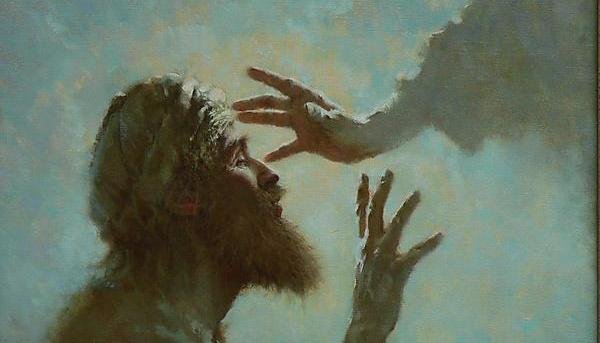Why don’t more Christian people seem to do “Christian” things? Why is it that our political leaders often invoke religion, quote the gospel, yet lack the radical coherence that Jesus exemplifies and practices? Is it possible for us to be motivated by discipleship more than out of fear? If so, how do we walk that straight and narrow path without compromising our values, beliefs and relationships? Those are some of the questions with which today’s text wrestles.
We are backing up, returning to a part of Mark that we skipped over in our global reading of the gospel. It’s a collage of familiar elements (the third of three prophecies about the Son of Man being betrayed, tried and executed as a ransom. [see Mark 8:31-38; 9:30-32 & here] That title comes from prophecies in Daniel 7 which talk of God’s righteous one coming to right the wrongs of the world (at a time when Israel was oppressed by a different world power) who resembled on like the son of man on the clouds.
The disciples seem both aware and unaware. They’re on the Way with Jesus, but afraid before he breaks the scary news to them. They are jockeying among themselves for the better positions. We see two of them unsuccessfully try to manipulate Jesus through a misguided power grab. In response Jesus teaches them about servant leadership. It’s commonly used term in modern evangelical-ese. But in the ancient world “Servant King” was a term associated with a ineffective leadership who pandered to the will of the masses. But the vision of Jesus is nearly non-existent. He makes a radical association of kingship with slavery. He says that power is from weakness, authority from submission.
The last section is about a blind man – who cannot see, but is looking for Jesus. He seems to be both physically and spiritually blind, yet he alone immediately follows Jesus, coming after him on his Way as a disciple. The others have been walking on the way with Jesus (who is the Way, the Truth and the Life : John 14:6) see 10:32. Bartimaeus is alongside the way (10:46) but clearly on the way by the end 10:52. Rather than going home, back to the familiar to share what’s happened to him, he follows the Way of Jesus – refusing to simply conform to what he was before.
The passage lifts up the kingship of Jesus. He comes as a slave to all. He comes with breathtaking audacity – not to dare to do things, or to change the world, but rather his action and example is breath-taking for its sheer undermining of the way the world – and human nature – work. This teaching is extremely resonant in our world today in the light of Daesh terrorism, presidential elections, and debates about offering shelter to refugees. Dr. King wrote : “Darkness cannot drive out darkness; only light can do that. Hate cannot drive out hate; only love can do that.” The way up is seemingly the way down. In our time when we are surrounded by options, but struggle to find meaning, how do you experience this confounding word as a way to liberation? How do you need to be healed in order to drink from Christ’s cup, receive his baptism and follow him on the way?
Questions for Going Deeper:
- What do you think is the message of this gospel selection?
- How have you experienced it as truth in your life?
- What invitation do you hear from God in this text to act, say, be or do?
Download a copy of my study notes I use for my exegetical thinking and sermon writing HERE on our capcoakland.org site.
